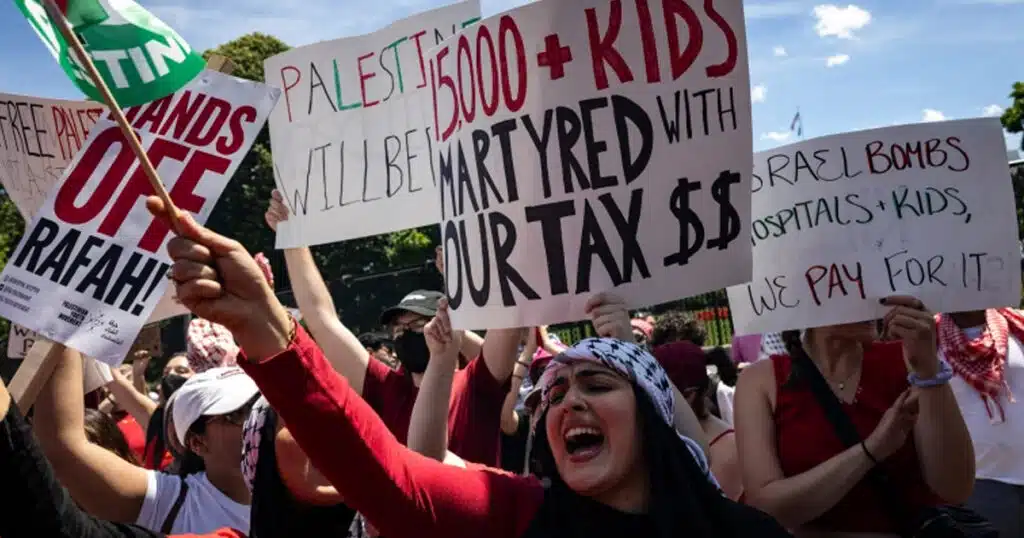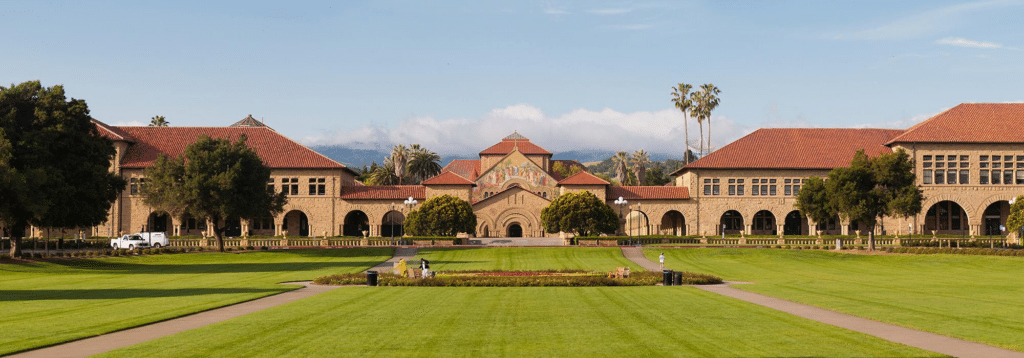
When Can Government Deport Foreign Students for Pro-Hamas Protests?
Is there any behavior by a foreign student here on a visa that’s so bad that he should be deported? Apparently under Joe Biden, the answer was no. It remains to be seen how campus radicals will fare under Donald Trump.
Momodou Taal, described in a local paper as a “United Kingdom citizen” and elsewhere as “British-Gambian,” is an international student at Cornell University here on a visa, working on his doctorate in “Africana studies.”
This recording in the X post below is reportedly of Taal at a protest in March speaking about fellow protesters and himself being “in solidarity with the armed resistance in Palestine.” (Warning: Contains foul language.)
In this other protest clip in the X post below, a man who appears to be Taal calls for students to “continue to agitate, disrupt, until this institution [Cornell University] divests,” by which he appears to mean divesting from Israel and companies doing business with Israel:
According to The Ithaca [New York] Voice, Taal “has been involved in on-campus organizing efforts since the war in the Gaza Strip broke out Oct. 7, 2023.”
At various times, students supporting Palestinian “resistance” to Israel occupied the library at Cornell, staged “die-in” protests, and marched around campus chanting slogans. Cornell accepted that students had a “right to free expression” but said they “must comply with our time, place, and manner guidelines” so that other students and staff could get on with teaching and learning.
Taal was at a Sept. 18 campus protest where he allegedly forced his way past police into a hotel event to which he was not invited. Though they kicked him off campus, Cornell eventually decided not to suspend him. If it had, the school would be required to report this to U.S. Immigration and Customs Enforcement, which maintains the national Student and Exchange Visitor Information System (SEVIS) database.
Being out of “student status” would eventually make Taal deportable—although many students in that position then make defensive asylum claims (often without merit) so they can stay years longer while those cases work their way through immigration courts.
Taal has said, “There will never come a time where I say to myself that I went too hard for Gaza.” At that March protest, he talked about being in solidarity with the armed resistance in Palestine from the river to the sea,” the “armed resistance” would be Hamas or Hezbollah, both of which the U.S. considers terrorist groups.
Under U.S. immigration law, “Any alien—who endorses or espouses terrorist activity or persuades others to endorse or espouse terrorist activity or support a terrorist organization … is inadmissible” to the United States.
If this endorsement is apparent at the time of a visa applicant’s interview with visa officials, the adjudicating consular officer would refuse the visa. If Immigration and Customs Enforcement determined that a student had triggered the “endorse or espouse” ineligibility after arriving in the U.S., it could initiate removal proceedings against the now-deportable alien.
Furthermore, the issuing U.S. Embassy or consulate in the student’s home country can revoke his visa, adding a second charge of deportability for being present without a valid visa. That means when the student goes home, he can’t return to the U.S. again.
Cornell backed down from sanctioning or reporting Taal due to public pressure. Instead, it allowed Taal to have his cake and eat it, too. He can boast of his “First Amendment rights” yet pay no price for advocating violence.
Anti-Israel, antisemitic, and outright pro-Hamas protests continue to take place across the nation.
In June, anti-Israel protesters in Washington, D.C., flew Palestinian flags and burned an American flag. They threw objects at National Park Service rangers, defaced public property, and chanted, “Globalize the intifada,” “From the river to the sea,” and other violent slogans.
According to reporting from The Washington Free Beacon, a student at Georgetown University’s School of Foreign Service said, “Several master’s degree candidates, many on prestigious Pickering and Rangel fellowships, attended protests on campus and elsewhere” in Washington. These fellowships come with free tuition, a stipend, and close-to-guaranteed entry into the State Department’s diplomatic service. They are paid for with our tax dollars.
At Columbia University in April, students broke into the university’s Hamilton Hall and barricaded the doors with furniture. Young men who may have been students dragged along the ground the American flag that too many men their age died to defend.
The Free Beacon reported that police searching the home of the two leaders of George Mason University’s Students for Justice in Palestine chapter found guns, ammunition, “Hamas and Hezbollah flags and signs that read ‘Death to America’ and ‘Death to Jews.’” One of the students posted a photo on social media with the caption “Glory to every single martyr in Gaza, Lebanon, and Yemen … may we avenge our martyrs every single day.”
As American citizens of Palestinian origin, these students are not subject to visa revocation, but they are certainly bound by university rules and are responsible if they damaged college property as they are alleged to have done.
At the University of Michigan, radicals have vandalized the home of a college regent three times in the past year. In December, they threw jars of urine through his house window and painted “Divest” and “Free Palestine” on his wife’s car.
But American universities tend to cave to student demands rather than enforce their own rules.
At a congressional hearing in May, the presidents of Northwestern, Rutgers, and the University of California, Los Angeles, were asked how many students had been suspended for antisemitic conduct since Hamas’ terrorist attack on Israel on Oct. 7, 2023. Hardly any, was the answer.
MIT’s president said she’d get tough on campus antisemites but then backed down “because we later heard serious concerns about collateral consequences for the students, such as visa issues,” she said. That tells you where MIT’s priorities are.
As recently reported by The Daily Wire, Claremont McKenna College in California offered free consultations with immigration lawyers for illegal alien students and promised “maximum support to undocumented students.”
Most student protesters cover their faces because they don’t want to be accountable. When over 100 students from Boston’s Emerson College were arrested at their illegal campus campsite, they asked the newspaper not to publish their photos.
While often allowed to break most every rule in the books, some students have been shocked to get arrested, suspended, or even expelled. In student demand letters to their school administrations after campus demonstrations, a common “demand” is to be absolved of any consequences for their actions.
A group of Princeton students claimed they would go on a hunger strike until their demands (“divest from Israel,” “cultural boycott,” and “complete amnesty from criminal charges”) were met. Some professors also demanded that no one be suspended.
When student Maryam Alwan was arrested at Columbia’s “Gaza Solidarity Encampment” in April and barred from campus, classes, and her dining hall, she was supported by students and faculty in her demand to have her charges cleared and receive no suspensions.
Today’s protesters have every right to speak freely, but if they break campus rules or criminal laws, or trigger visa bars, they should pay the price.
For example, companies don’t have to hire student radicals. A graduate of Georgetown Law School who landed a job with law firm Foley & Lardner had that offer revoked due to her anti-Israel, pro-Hamas activism. A court just rejected her lawsuit to force the firm to hire her.
And colleges should follow their own disciplinary rules, regardless of the immigration status—or sex, race, or color—of the student involved. If that means suspending a violator, and that suspension results in him being sent home, so be it. Studying in the United States is a privilege, not a right.
The federal government’s power to deport aliens for endorsing terrorism was passed into law after the Sept. 11, 2001, terrorist attacks, but as far as I know, has never been exercised. Its time has come.



